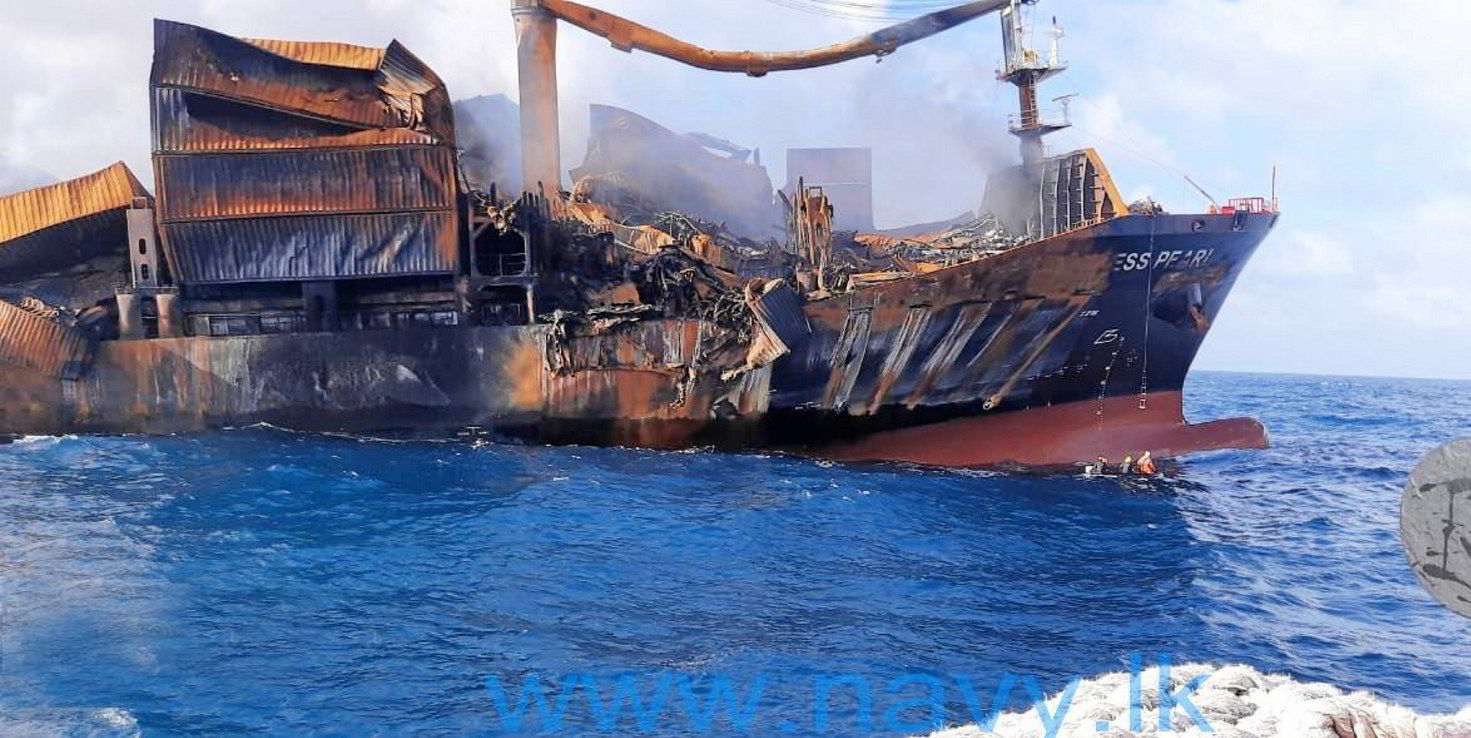A judge has ruled that a claim against the London P&I Club over the sinking of a new container ship off the coast of Sri Lanka must be heard in the UK.
The protection and indemnity club successfully argued that a case brought by cargo interests in Sri Lanka over the sinking of the 2,756-teu X Press Pearl (built 2021) should be halted and arbitration brought to London.
The ship suffered a catastrophic fire and grounded in June 2021 resulting in thousands of tonnes of plastic pellets being spilt into the sea and washing up on nearby coastlines.
A bonded warehouse operator and four individuals, all with interests in the cargo, had brought claims in Sri Lanka against the club and the registered owner, EOS Ro, and the time charterer Sea Consortium, both of Singapore.
They alleged the vessel breached its warranty of seaworthiness before the voyage.
But the judge ruled that the insurance contract included undertakings that any claim against the club would be referred to arbitration in London. The club brought action in London to enforce the rule.
The cargo interests in Sri Lanka did not respond to legal letters about the case and were not present at a hearing on 12 April.
In a judgment handed down on Tuesday, Mr Justice Bright ruled in favour of the club “given that the provision arises in a contract that is expressly governed by English law”.
Lawyers for the Sri Lankan cargo interests have been approached for comment.
The casualty had a significant impact on insurers with environmental work continuing in Sri Lanka more than two years after the sinking.
More than 30 km of coastline were badly affected by the plastic pellets.
The Swedish Club also saw its earnings hit as the lead hull insurer for the vessel that was declared a constructive total loss after the fire.
The casualty also contributed to new rules being drawn up at the International Maritime Organization to better stow plastic pellets, known as nurdles, to limit environmental damage.
Packed with chemicals, these building blocks for plastic products are often mistaken for food by marine life.
Read more
- Oil spill fund names and shames late payers as it rewrites rules
- Lloyd’s refuses $426m Nord Stream blast claim over war clause
- Principles over profit: Why specialist P&I provider turned down $50m in business
- Abu Dhabi investor linked to swoop for Danish Ship Finance’s $5bn loan book
- Singapore seeks estimates of freight and insurance costs to import ammonia





